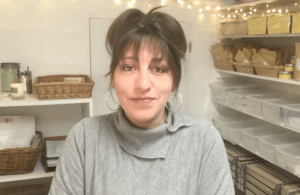“Eczema” is the catch-all term for a medical condition in which patches of skin become rough, dry, red, itchy and inflamed. These areas can develop blisters and fissures, or cracks, that become itchy and may bleed.
Because “eczema” is used to describe many different skin conditions there are various ways that eczema might look or feel. And it can show up in different places on the body, too.
Here are some of the conditions that come under the term ‘eczema’:
- atopic dermatitis
- contact dermatitis
- dyshidrotic eczema
- hand eczema
- neurodermatitis
- nummular eczema, and
- stasis dermatitis
Your GP will need to identify exactly which kind it is, or they may refer you to a dermatologist. I hope to provide you with some useful insight into this condition, but since I am not a GP or a dermatologist, what you read here is no replacement for consulting a medical expert.
There are many different kinds of rash. In order to make a diagnosis, the doctor will take a careful look.
You can find out more about identifying eczema in my next blog post.
What Causes Atopic Eczema?
Not only does eczema go by many other names, it can also be caused by many different things, alone, or in combination.
Atopic eczema can be caused or worsened by environmental, chemical and other factors, such as :
- extremes of humidity
- extremes of hot and cold weather
- seasonal allergies
- harsh soaps and detergents
- diet
- hormones and stress
Other things to consider
Your genes can increase the likelihood of your developing atopic eczema. According to research, if you have one or more parents with atopic eczema, or you have one or more siblings with atopic eczema, then you are more likely to be susceptible to it.
If you have atopic eczema, you may well have very dry skin. Your skin will need some help retaining moisture, because dry skin is more likely to react to environmental irritants and become itchy.
Despite what you may have heard, eczema is not infectious. You can’t get atopic eczema by touching someone else’s skin.
Who Gets Eczema?
Mostly, eczema appears first in very young children. About seven out of ten cases start in children younger than five years old.
So, you should look out for the signs early. And know that there are things you can do to make the lives of your kids or anyone suffering from eczema much more comfortable, and I will be producing more articles about that so keep an eye on the Sophie’s Barn website if you’d like to know more.
Right! I’m off to moisturize with some wonderful coconut oil and carry on trying to pronounce ‘dyshidrotic’!




